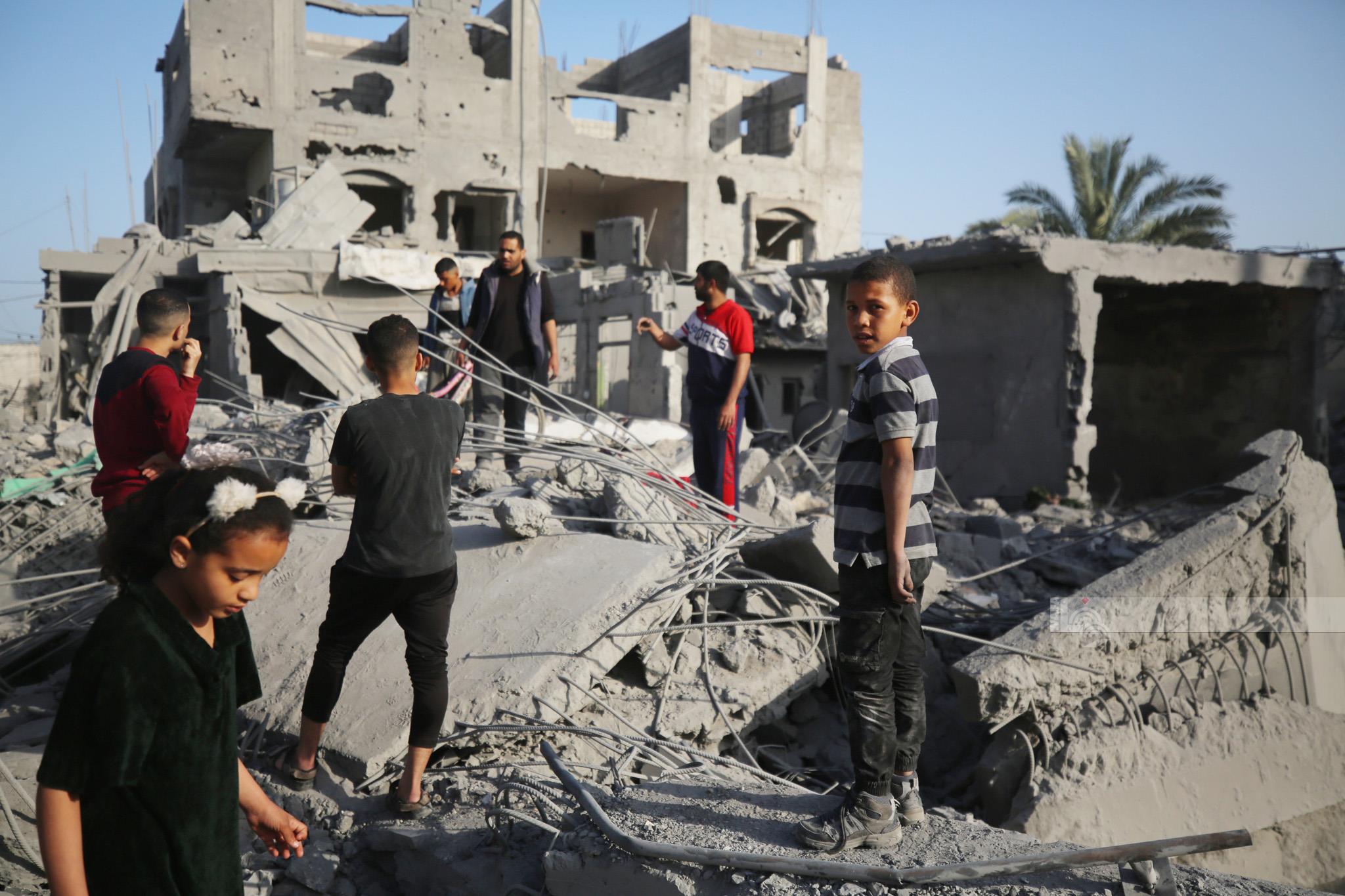Qatar has been playing a very significant mediating role in the release of captives from Gaza and striving for a ceasefire in the beleaguered Strip.
Spain’s Prime Minister Pedro Sanchez commended on Monday Qatar over its mediation efforts in securing a ceasefire in the Gaza Strip.
In a recent statement shared on the media platform X, Sanchez said that he engaged in a telephone conversation with Qatar’s Amir Sheikh Tamim bin Hamad Al Thani, in which he conveyed his appreciation for the Gulf nation’s pivotal role in mediating the ceasefire negotiations and facilitating the release of Israeli captives in Gaza.
Expressing his concerns to Sheikh Tamim regarding a potential Israeli operation in Rafah, Sanchez emphasised Spain’s commitment to backing endeavours for a just and sustainable peace in the enclave.
“An offensive on Rafah will increase the suffering already endured by the Palestinian people. It is urgent that a ceasefire be reached that prevents the death of more innocent civilians and allows the entry of humanitarian aid and the release of Israeli hostages. The international community cannot remain passive in the face of this tragedy,” he shared on his X platform.
He reiterated support for the two-state solution and the mutual recognition of Palestinian statehood as vital components of this peace process.
Qatar, the host of a Hamas political office, has been playing a very significant mediating role in the release of captives from Gaza and striving for a ceasefire in the beleaguered Strip.
Doha and Cairo had mediated a week-long truce between November 24 and December 1 that led to the release of at least 110 Israeli and foreign captives from Gaza.
However, talks have been stalled since the truce expired.
Within seven months, Israel has killed at least 34,735 people in Gaza, with 78,108 wounded. Israel also forced at least 1.7 million people into displacement, according to the United Nations.
Monday’s phone conversation comes as the spokesperson for Qatar’s Ministry of Foreign Affairs Majed Al Ansari revealed that Hamas sent the mediators a “positive” response to the proposals that they put forward to Israel and the movement regarding a truce.
Hopes over a ceasefire in Gaza on the seven-month mark of the war first emerged when Hamas accepted the proposal, which entailed a 124-day truce that would eventually lead to a lasting ceasefire.
Despite the latest efforts Israel began its planned ground invasion of the densely-populated city of Rafah in southern Gaza, hours after ordering hundreds of thousands to evacuate the eastern part of the area.
The Israeli army announced that they captured control over the Palestinian side of the Rafah Crossing, which Gaza shares with Egypt, on Tuesday morning.
The vital Rafah Crossing is the only portal in and out of Gaza and has enabled thousands of injured Palestinians to travel abroad for treatment.
While aid has been barely crossing over into Gaza due to Israel’s complete blockade, the border served as the main entry point for aid trucks.
Rafah is densely populated with at least 1.4 million people, more than half of Gaza’s population, who have been sheltering in the city. Most of the people in Rafah were initially ordered by the Israeli military to evacuate the north in October.
Speaking at a joint press conference with Sanchez on April 3, Qatar’s prime minister stressed that the move would only lead to another genocide.
“We don’t see any country but Israel supporting an attack on Rafah. You cannot corner the people, around 50 percent of the population in Gaza, almost 10 percent of the Strip, and attack them,” Sheikh Mohammed said.
“It won’t happen without committing a major genocide besides the genocide being committed in Gaza,” he added.







